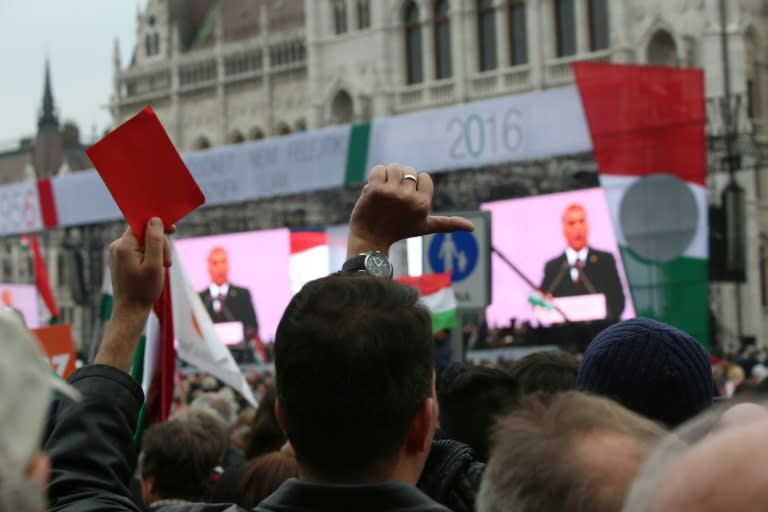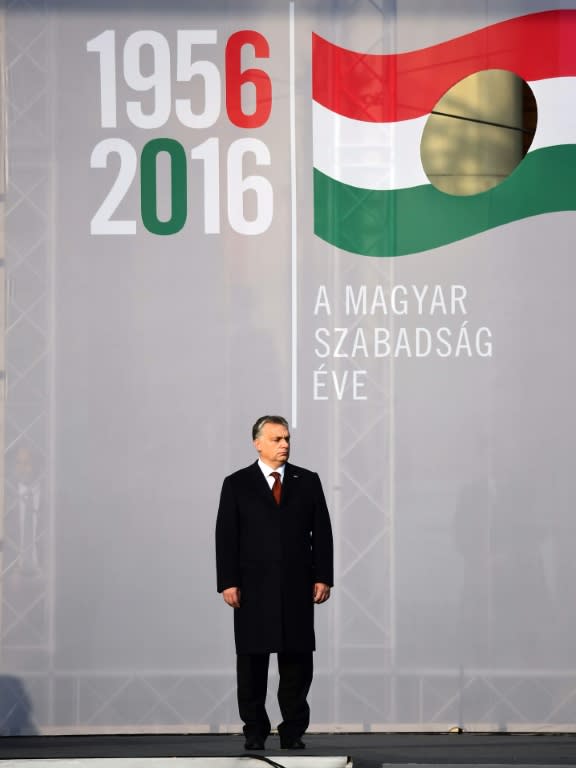Scuffles disrupt Hungary 1956 revolt anniversary
Scuffles between supporters and opponents of Hungarian Prime Minister Viktor Orban disrupted a state commemoration of the 60th anniversary of the 1956 anti-Soviet uprising in Budapest Sunday. Orban's address to a crowd estimated by an AFP photographer at around 15,000 in front of parliament was met by the sound of whistles and air-horns from several hundred protestors gathered at the fringe of the event. As the protestors continued to make noise through the event, which was also addressed by Polish president Andrzej Duda, several scuffles broke out. A prominent Hungarian historian Krisztian Ungvary, who stood among the protestors, was struck in the face by an unknown assailant. The anniversary of the failed uprising against Soviet rule after which 200,000 Hungarian refugees fled the country has brought into focus criticism of Orban over his stance on refugees and migration. The 53-year-old premier, in power since 2010, has been one of the European Union's loudest critics of the bloc's immigration policy. Portraying himself as both a defender of Hungary and Europe against the influx into the EU of mostly Muslim migrants since 2015, Orban built razor-wire fences on the country's southern borders. During his speech Orban said Hungary's geographical position "pushes it from time to time in the current of decisive debates on Europe's future". "There was a time when we allowed the opening of borders so that Germans could meet with Germans, now in 2016 we had to close borders," he said. Orban also held a referendum last month over the EU's plan to redistribute refugees around the bloc, and has moved to include in the constitution a ban on the settlement of "alien population". On October 23 1956, the armed uprising against Soviet communist rule erupted after authorities opened fire on peaceful demonstrators. After a retreat by Soviet troops signalled an apparent victory by the rebels, the Soviets returned in early November dooming the revolt to a swift defeat. Hundreds were executed in its aftermath including Imre Nagy, a reform-minded communist leader who moved to withdraw Hungary from the Soviet bloc. Political demonstrations are often held on the October 23 anniversary. In 2006, the most serious street disturbances since 1956 broke out after right-wing protestors fought fierce battles with police.



